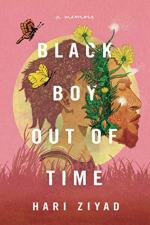
|
| Name: _________________________ | Period: ___________________ |
This test consists of 15 multiple choice questions and 5 short answer questions.
Multiple Choice Questions
1. In Canto II: Queer, "Chapter 6: A Prayer for Limitless," how does Hari describe his approach to spirituality and religion?
(a) Hari is indifferent to matters of faith and spirituality.
(b) Hari is committed to one specific belief system.
(c) Hari has been initiated by multiple spiritual teachers.
(d) Hari explores various belief systems but doesn't practice any.
2. In Canto I: Black, "Chapter 2: A Prayer for My Father," what does Daddy advise Hari regarding buying cars?
(a) Opt for Japanese cars.
(b) Always choose American brands.
(c) Buy Hondas and avoid American cars.
(d) Prefer European vehicles.
3. In Canto II: Queer, "Chapter 7: Guilt and Dogs," what does Hari struggle to reconcile?
(a) His academic achievements and his father's approval.
(b) His passion for music and academics.
(c) His love for sports and his identity crisis.
(d) His friendship with Michael and his mother's expectations.
4. Why does Hari feel conflicted about seeking therapy?
(a) He is hesitant about policing his emotions.
(b) He is afraid of medical professionals.
(c) He believes therapy is ineffective.
(d) He fears being judged for seeking help.
5. In Canto I: Black, "Chapter 4: A Prayer for Rest," what does Hari compare the feeling of impending distress to?
(a) A clear sky.
(b) A storm on the horizon.
(c) A gentle breeze.
(d) A calm ocean.
6. In Canto II: Queer, "Chapter 8: A Prayer for Another World," how does Hari's perspective on his father's hoarding habits evolve?
(a) Hari never understood his father's hoarding habits.
(b) Hari appreciates his father's hoarding as an expression of love for the family.
(c) Hari always sees his father's hoarding as a sign of love.
(d) Hari comes to resent his father's hoarding as he grows older.
7. In Canto I: Black, "Chapter 2: A Prayer for My Father," how does Hari interpret his father's naming process for him?
(a) As a means to force his cultural identity.
(b) As a way to burden him with expectations.
(c) As a reminder of his parents' authority.
(d) As a method to remember lessons learned.
8. In Canto I: Black, "Chapter 4: A Prayer for Rest," what does Hari contemplate towards the end?
(a) Embracing a different path without self-punishment.
(b) Disconnecting from the absent figure.
(c) Pursuing financial success above all else.
(d) Giving up on his pursuit of excellence.
9. In Canto II: Queer, "Chapter 8: A Prayer for Another World," what event from the text symbolizes unity and belonging for Hari?
(a) Playing with imaginary friends.
(b) Attending school.
(c) Watching TV shows.
(d) The family gathering with the Electric Slide.
10. In Canto II: Queer, "Chapter 8: A Prayer for Another World," what is the significance of the phrase "Teach you, teach you, teach you, I’ll teach you the Electric Sliiiiide" (110)?
(a) It captures the joy and unity of a family gathering.
(b) It emphasizes the magic of childhood memories.
(c) It symbolizes the importance of physical activity for children.
(d) It represents Hari's reluctance to engage in family activities.
11. How does Hari characterize his childhood neighborhood?
(a) A neighborhood that lacks understanding.
(b) A place where Black children are excluded.
(c) An affluent suburb with strict segregation.
(d) A racially diverse community with strong bonds.
12. In Canto I: Black, "Chapter 4: A Prayer for Rest," what effect does Hari's conversation with his father have on him?
(a) It increases his anxiety.
(b) It amplifies his feelings of powerlessness.
(c) It reinforces his pursuit of excellence.
(d) It eases his anxieties and provides guidance.
13. In Canto II: Queer, "Chapter 6: A Prayer for Limitless," how does Hari feel about the government's narrative of the events of 9/11?
(a) Hari fully trusts the government's account.
(b) Hari has no opinion on the matter.
(c) Hari is skeptical of the government's narrative.
(d) Hari believes it's entirely accurate.
14. What underlying sentiment drives Hari's pursuit of academic superiority over Betty in the Pride school?
(a) A need to challenge the dominance of white students.
(b) A commitment to promoting diversity and inclusion.
(c) A desire for genuine friendship and collaboration.
(d) A fear of being associated with everyday Black individuals.
15. In Canto II: Queer, "Chapter 8: A Prayer for Another World," what contributes to Hari's current sense of isolation?
(a) His disinterest in reflecting on the past.
(b) His reluctance to attend family gatherings.
(c) The absence of imaginary friends.
(d) The criminal justice system and its impact on family.
Short Answer Questions
1. What role does Michael play in Hari's life?
2. In Canto I: Black, "Chapter 3: Nowalater," what term does Hari use to describe the act of reducing Black children to simplified, often negative narratives?
3. In Canto II: Queer. "Chapter 7: Guilt and Dogs," what does Hari ultimately recognize the importance of?
4. In Canto II: Queer, "Chapter 6: A Prayer for Limitless," what does Hari hope to achieve by not abandoning what and who he loves?
5. According to Margaret Paul's Inner Bonding, what is the purpose of inner-child work?
|
This section contains 816 words (approx. 3 pages at 300 words per page) |

|




